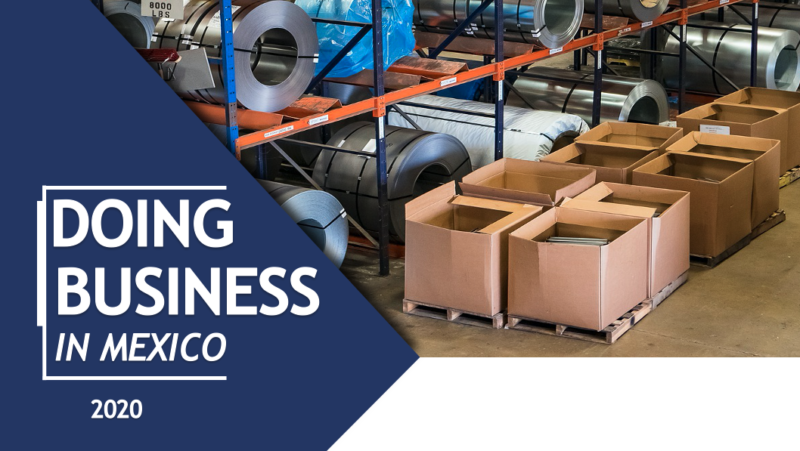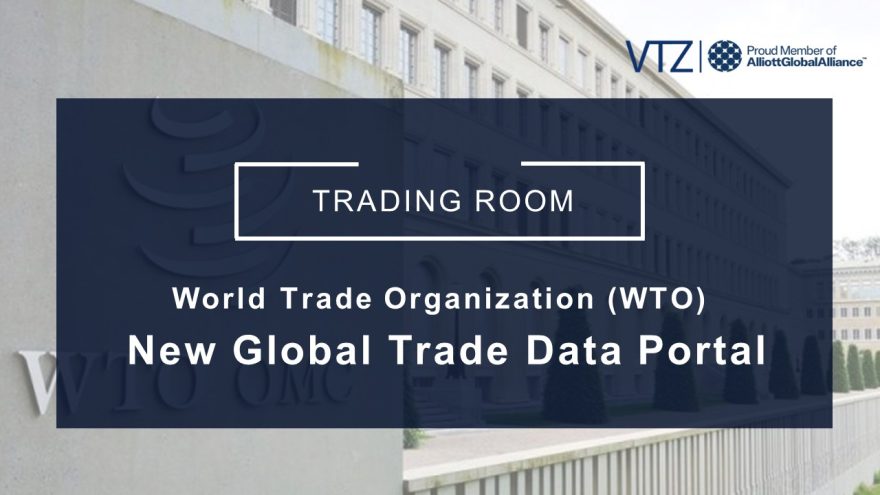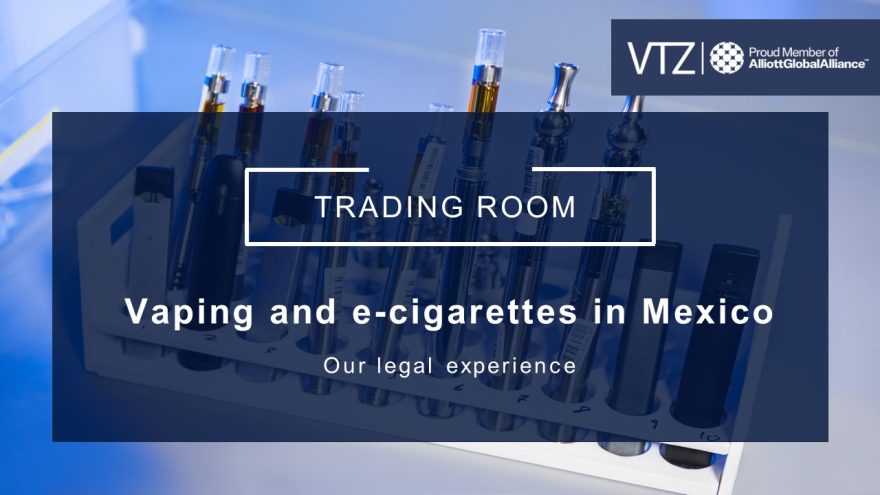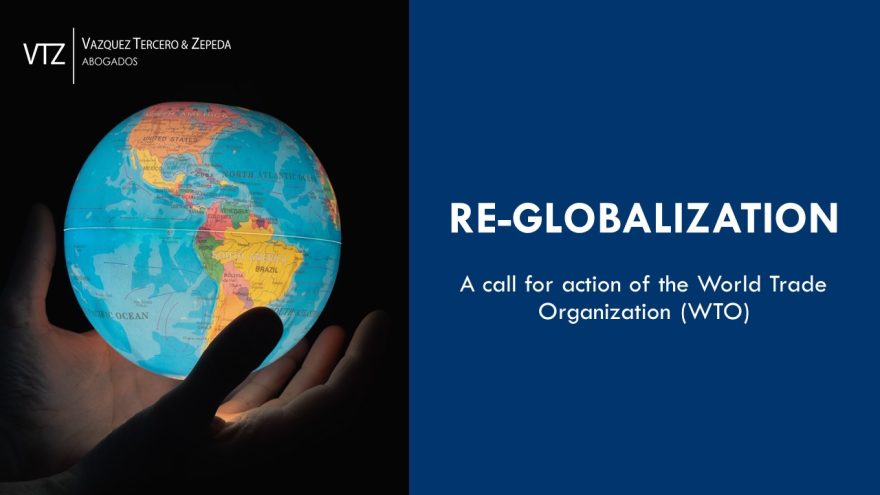Our fourth chapter of Doing Business in Mexico, Policy for the Manufacturing Industry in Mexico, will provide a general overview of the programs that promote the Mexican manufacturing industry, including the requirements and benefits to obtain various programs.
- Mexican Policy for the Manufacturing Industry
- What is the IMMEX Program?
- IMMEX Options
- IMMEX Benefits
- IMMEX Obligations
- Grounds for Suspension and/or cancellation of the IMMEX Program
- Tax Aspects: Income Tax and Value Added Tax
- Corporate Matters
- International Trade Matters
- Comprehensive Certification Company Scheme
- VAT/IEPS Certification
- General Requirements to Obtain VAT/IEPS Certification
- VAT/IEPS Certification Benefits and Requirements
- Authorized Economic Operation Certification
- Authorized Economic Operator Requirements in Mexico
- Benefits of Authorized Economic Operator
- Sector Promotion Program (PROSEC) and Eight Rule
 Cargando…
Cargando…
Mexican Policy for the Manufacturing Industry
The export manufacturing industry represents one of the most important pillars of Mexico’s economy. Once characterized for being in the northern border, the manufacturing industry has spread and established itself as well in the center of the country. As noted in Chapter 2 – Foreign Investment, about half of foreign investment inflows are destined for the manufacturing sector.
Within the manufacturing industry, the automotive sector is the most economically important, followed by the food, chemical, and basic metal sectors. The success of the automotive industry is largely explained by the integration of supply chains that began with the entry into force of the North American Free Trade Agreement (NAFTA). As noted in Why Investing in Mexico? Mexican manufacturing exports have left behind agricultural, extractive, and oil exports, which for many years were the most important in the Mexican economy.
During the economic crisis due to the COVID-19 pandemic, Mexico is committed to the opportunities offered by the USMCA so that the maquiladora industry can innovate and add more added value to manufactured goods.
As explained in the following lines, Mexico has created different international trade promotion policies specifically designed for the manufacturing industry. These policies aim to facilitate international trade operations, create economic incentives, and provide legal security for export manufacturing companies. At the same time, international trade promotion policies have contributed significantly and positively to the Mexican economy, attracting foreign investment, creating industrial clusters, and jobs.
The IMMEX Program: What is the IMMEX Program?
The IMMEX Decree is a duty-deferral government program that provides benefits to authorized companies that engage in the manufacturing or maquila operation scheme in Mexico, including import-export. In essence, the IMMEX Program grants administrative facilitation measures and tariff incentives to manufacturers, and foreign-owned companies may also access income tax incentives. The companies must be “residents” in Mexico to access the IMMEX Program per the provisions of the Federal Tax Code and the Income Tax Law.
Notably, IMMEX companies are authorized to introduce goods under the temporary importation customs regime, deferring (avoiding) the payment of import duties or the General Import Tax (known as IGI in Spanish acronym), and where appropriate, antidumping and countervailing duties. The purpose of these benefits is to create an attractive regulatory framework for the export-oriented manufacturing industry; in other words, IMMEX companies can carry out manufacturing activities with temporarily imported goods in a low tax or tariff environment, but upon the condition that the imported goods are exported after submitted to production or some service.
Many foreign investors benefit from the IMMEX Program because it allows, for instance, to manufacture or repair products in Mexico preserving the company’s cash-flow and using excellent and low-cost labor.
The Ministry of Economy and the Ministry of Treasury have joint responsibility for issuing the IMMEX authorization. However, the Ministry of Economy is the authority in charge of issuing the IMMEX authorization or certificate to a company (hereon referred to as “IMMEX company”), while the Ministry of Treasury has to approve the company prior said authorization is issued. Besides, an IMMEX company may access extra tax benefits such as the VAT/IEPS Certification issued by the Mexican IRS (known as SAT, in Spanish). For more information on the VAT/IEPS Certification, see Section 4.2.1.
IMMEX Options
Depending on the planned operations or activity, a company may apply for the following five IMMEX options:
| IMMEX Industrial | The Industrial IMMEX is the most common type of IMMEX option, and it is granted to a company that uses imported materials and carries out an industrial manufacturing process or transforms goods for export. |
| IMMEX Holding Company | This modality is like the industrial modality, but it is for an industrial group that carries out the industrial process. The IMMEX program is granted to a certified company, called the “holding company”, and one or more companies that are integrated into the manufacturing operation and controlled by the holding company. |
| IMMEX Services | This modality is for a company that performs services for the process of producing goods for export or carries out export services. |
| IMMEX Accommodation (or Shelter) | This modality is for Mexican firms that offer maquila (or tolling) services to foreign companies, while the foreign companies will provide the technology and inputs without operating its own IMMEX company. In other words, the IMMEX Shelter company will import the technology, raw materials, and components supplied by the foreign company and will carry out the industrial activities according to a contract; the finished or semi-processed products are exported to the foreign company. |
| IMMEX Tertiary | This modality consists of a certified IMMEX company, that due to lack of appropriate infrastructure, carries out a manufacturing process through third parties registered under its IMMEX Program. |
Thank you for your interest and for visiting our website, to continue reading please fill out the form below.
For more information about VTZ Law Firm services, visit our website.
Subscribe and Receive for Free Our Guide





